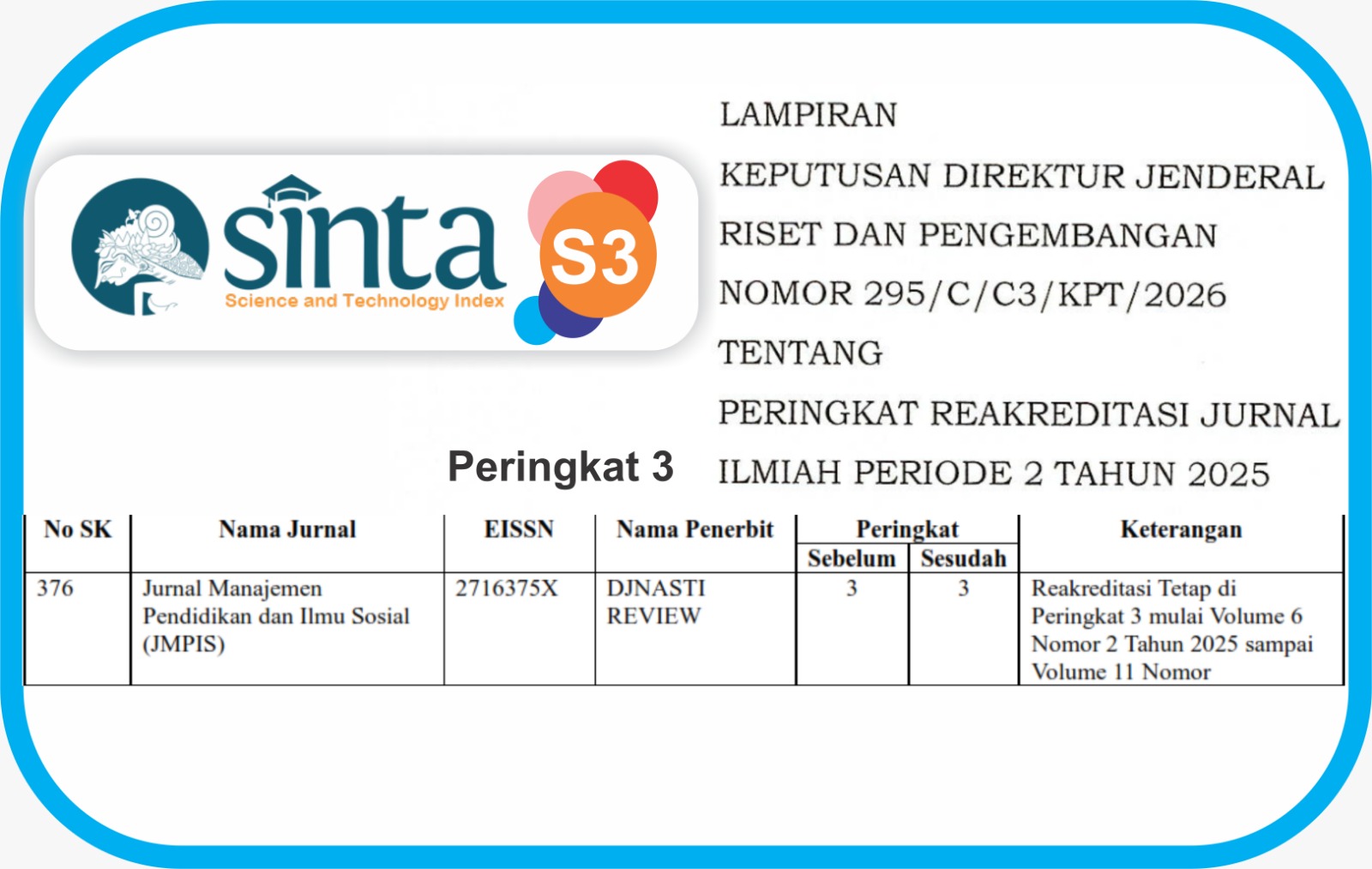Pengetahuan Nutrisi pada Ibu Rumah Tangga: Studi Empiris di Jakarta dan Pontianak
Keywords:
Kesehatan, Pengetahuan Nutrisi, Ibu Rumah TanggaAbstract
Abstract: This study aims to determine the level of nutritional knowledge of housewives in Jakarta and Pontianak. In addition, this study also analyzed differences in the level of nutrition knowledge of housewives based on their characteristics. The data collection method uses a survey with a questionnaire. The data collected were 131 respondents consisting of 64 respondents from Jakarta and 67 respondents from Pontianak. This study found that the nutritional knowledge of housewives was still very low. There are two aspects that are not understood by housewives, namely: (1) nutritional content, and (2) how to properly fulfill the body's nutrition. Based on their characteristics, all types of housewives have the same low level of nutrition knowledge.
Abstrak: Penelitian ini bertujuan untuk mengetahui tingkat pengetahuan nutrisi ibu rumah tangga di Jakarta dan Pontianak. Selain itu, penelitian ini juga menganalisis perbedaan tingkat pengetahuan nutrisi ibu rumah tangga berdasarkan karakteristiknya. Metode pengumpulan data menggunakan survei dengan kuesioner. Data yang terkumpul adalah 131 responden yang terdiri dari 64 responden dari Jakarta dan 67 responden dari Pontianak. Penelitian ini menemukan bahwa pengetahuan nutrisi ibu rumah tangga masih tergolong sangat rendah. Terdapat dua aspek yang belum dipahami oleh para ibu rumah tangga, yaitu: (1) kandungan nutrisi, dan (2) bagaimana memenuhi nutrisi tubuh dengan baik. Berdasarkan karakteristiknya, semua jenis kelompok ibu rumah tangga sama-sama memiliki tingkat pengetahuan nutrisi yang rendah.
References
Dickson-Spillmann, M., Siegrist, M., & Keller, C. (2011). Development and validation of a short, consumer-oriented nutrition knowledge questionnaire. Appetite, 56(3), 617-620.
Firmansyah, F. (2018). Isi Piringku. Diunduh dari https://kesmas.kemkes.go.id/konten/133/0/062511-isi-piringku
Gunnars, K., & Shoemaker, S. (2021). 9 High-Fat Foods That Offer Great Health Benefits. Healthline. Diunduh dari https://www.healthline.com/nutrition/10-super-healthy-high-fat-foods
Hoerster, KD., Campbell, S., Dolan, M., Stappenbeck, CA., Yard, S., Simpson, T., & Nelson,
KN. (2019). PTSD is associated with poor health behavior and greater Body
Mass Index through depression, increasing cardiovascular disease and
diabetes risk among U.S. veterans. Preventive Medicine Reports, 15, 1 – 7.
Inayati, D.A., Scherbaum, V., Purwestri, RC., et al. (2012). Improved Nutrition Knowledge and Practice through Intensive Nutrition Education: A Study among Caregivers of Mildly Wasted Children on Nias Island, Indonesia. Food and Nutrition Bulletin, 33(2), 117-127.
Jeong, NJ., Park, E., & del Pobil, AP. (2021). Effects of Behavioral Risk Factors and SocialEnvironmental Factors on Non-Communicable Diseases in South Korea:
A National Survey Approach. International Journal of Environmental
Research and Public Health, 18(2), 1 – 11.
Kementerian Kesehatan Republik Indonesia (Kemenkes). (2019). Laporan Nasional
RISKESDAS 2018. Jakarta: Lembaga Penerbit Badan Penelitian dan
Pengembangan Kesehatan (LPB)
Kementerian PPN/BAPPENAS. (2017). Peraturan Menteri Perencanaan Pembangunan Nasional Nomor 11 Tahun 2017 Tentang Pedoman Umum Pelaksanaan Gerakan Masyarakat Hidup Sehat. Jakarta : Kementerian PPN/BAPPENAS
Kosiba, G., Gacek, M., Wojtowicz, A. & Majer, M. (2019). Level of knowledge regarding health as well as health education and pro-health behaviours among students of physical education and other teaching specialisations. Balt J Health Phys Act, 11(1), 83-95.
Kurnia, P., Wardhani, DTK., & Hariyani, R. (2016). Consumer attitudes, nutrition knowledge, and use of nutrition information on the labels of packaged drinks among adolescents in Surakarta, Indonesia. International Conference on Health and Well-Being (ICHWB) 2016, 253 – 264.
Livingstone KM, & McNaughton SA. (2017). A Health Behavior Score is Associated
with Hypertension and Obesity Among Australian Adults. Obesity. 25 (9):
1-8.
Martin, SL., McCann, JK., Gascoigne, E., Allotey, D., Fundira, D., & Dickin, KL. (2020). Mixed-Methods Systematic Review of Behavioral Interventions in Low- and Middle-Income Countries to Increase Family Support for Maternal, Infant, and Young Child Nutrition during the First 1000 Days. Current Developments in Nutrition, 4 (6), https://doi.org/10.1093/cdn/nzaa085
Rahmadiana, M., Fikawati, S., & Syafiq, A. (2020). Extracurricular Education to Increase Nutrition Knowledge Among Primary School Children in Indonesia. Proceedings of the Third Andalas International Public Health Conference (AIPHC) 2019. http://dx.doi.org/10.4108/eai.9-10-2019.2297218
SamiatulMilah, A. (2018). Gambaran pengetahuan ibu hamil tentang asupan nutrisi di desa pawindan kecamatan ciamis kabupaten ciamis. Buletin Media Informasi Kesehatan, 14 (2). https://doi.org/10.37160/bmi.v14i2.211
Sari, HP., Subardjo, YP. & Zaki, I. (2018). Nutrition education, hemoglobin levels, and nutrition knowledge of adolescent girls in Banyumas district. Jurnal Gizi dan Dietetik Indonesia (Indonesian Journal of Nutrition and Dietetics), 6 (3), 107-112.
Spell, CS. (2016). There’s no sugar-coating it: All calories are not created equal. Harvard Health Blog. Diunduh dari https://www.health.harvard.edu/blog/theres-no-sugar-coating-it-all-calories-are-not-created-equal-2016110410602
World Health Organization (WHO). (2018). Noncommunicable Diseases. Diunduh dari https://www.who.int/news-room/fact sheets/detail/noncommunicable-diseases.
World Health Organization (WHO). (2020). Healthy diet. Diunduh dari https://www.who.int/news-room/fact-sheets/detail/healthy-diet
Worsley, A. (2002). Nutrition knowledge and food consumption: can nutrition knowledge change food behaviour?. Asia Pac J Clin Nutr. 11 (3), 579-585.
Zahrok, S., & Suarmini, NW. (2018). Peran Perempuan dalam Keluarga. Prosiding SEMATEKSOS 3, 61 – 65.
Downloads
Published
How to Cite
Issue
Section
License
Hak cipta :
Penulis yang mempublikasikan manuskripnya di jurnal ini menyetujui ketentuan berikut:
- Hak cipta pada setiap artikel adalah milik penulis.
- Penulis mengakui bahwa Jurnal Manajemen Pendidikan dan Ilmu Sosial (JMPIS) berhak menjadi yang pertama menerbitkan dengan lisensi Creative Commons Attribution 4.0 International (Attribution 4.0 International CC BY 4.0) .
- Penulis dapat mengirimkan artikel secara terpisah, mengatur distribusi non-eksklusif manuskrip yang telah diterbitkan dalam jurnal ini ke versi lain (misalnya, dikirim ke repositori institusi penulis, publikasi ke dalam buku, dll.), dengan mengakui bahwa manuskrip telah diterbitkan pertama kali di Jurnal Manajemen Pendidikan dan Ilmu Sosial (JMPIS).











































































